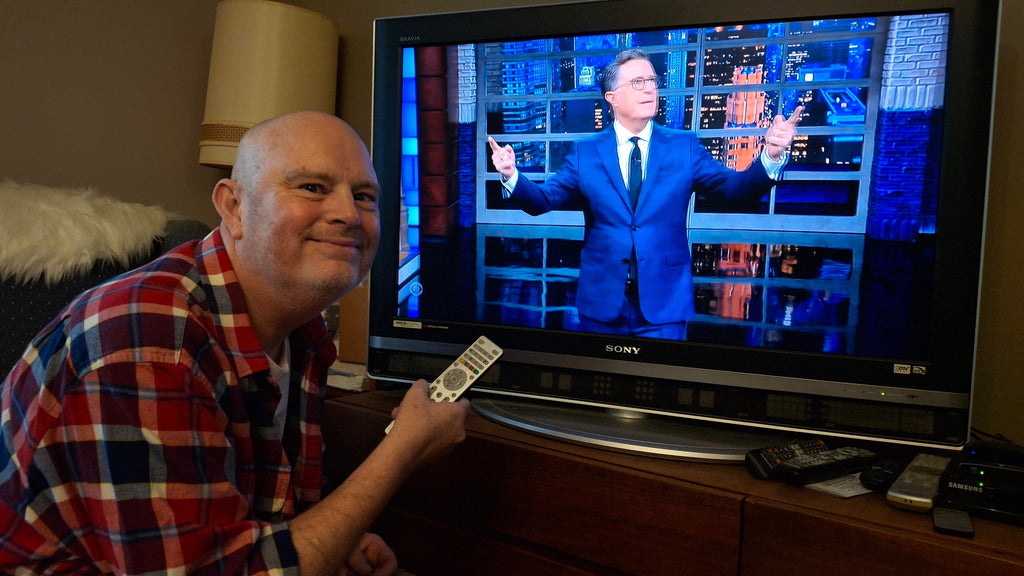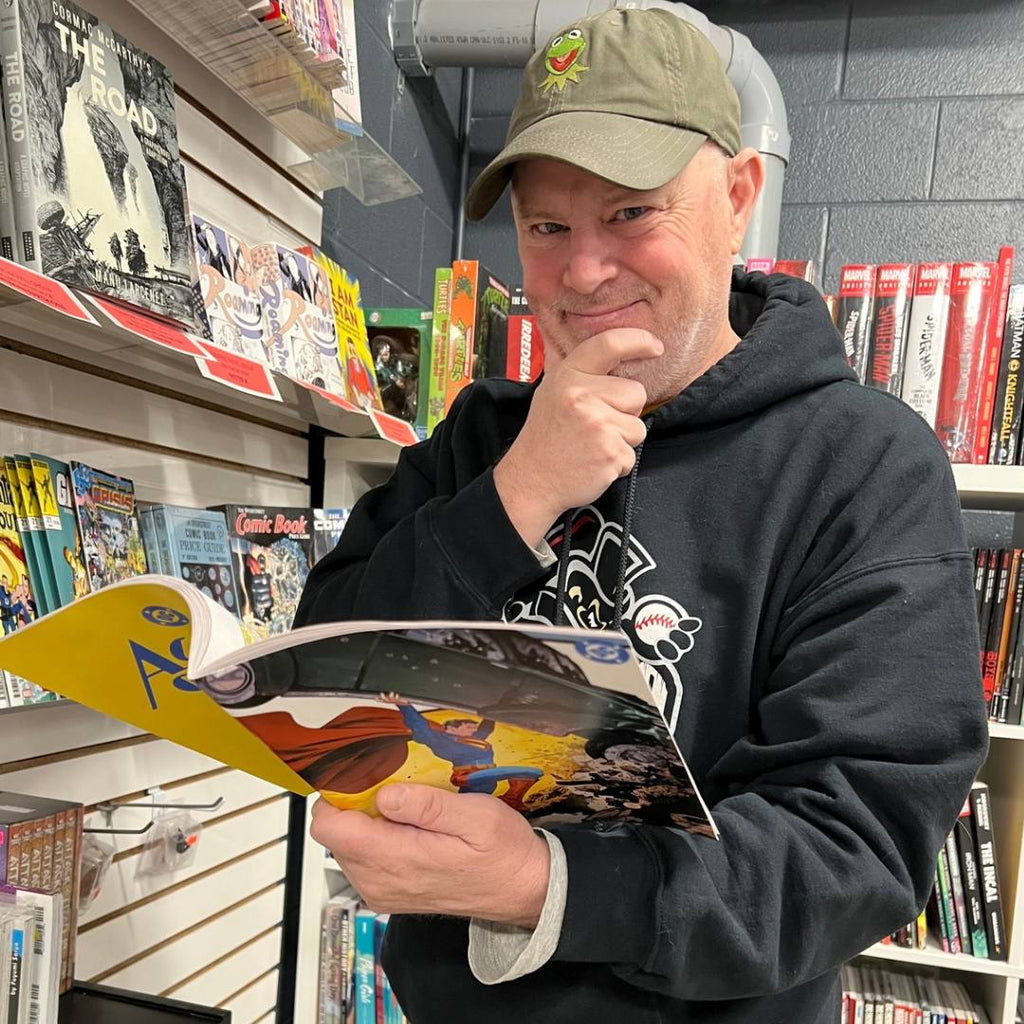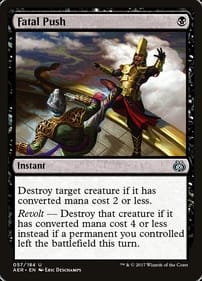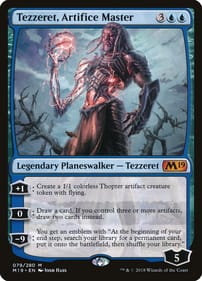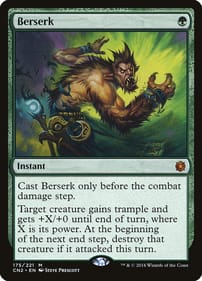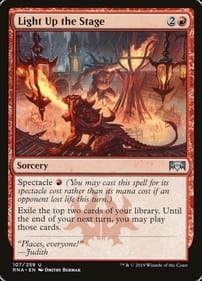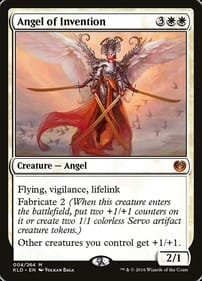Still No Stunt Oscar
By Dan Brown It’s 2026. The world changes every day. And yet there’s still no Academy Award for stunt performers. In fact, the stunt-design category for the Oscars won’t be handed out until 2028, which marks one century of the bloated Hollywood awards show. By then, those who literally put their bodies on the line to create convincing movie action scenes will have waited a full 100 years to be recognized by the Academy. I was thinking about this when the Oscar nominations were announced last week. You may have heard or read something about this year’s nods. The biggest headline emerging out of the press conference was that a vampire flick, Ryan Coogler’s Sinners, got 16 nominations – making it the most-nominated film in the history of Hollywood. That’s more nods than Titanic ever got, or The Godfather or Ben-Hur. It sounds like an impressive achievement until you look a little more closely. Although fall guys and gals won’t get much-deserved recognition until two years from now, the Oscars did add one new category this time: The honour for best casting. So with one extra category, the odds of ANY film breaking the record for most Oscars went up a bit this year. Sure enough, one of the nods for Sinners is in the casting division. I’m not saying casting directors don’t work hard or don’t have an impact on a movie’s success. But the fact the stunt Oscar has been delayed for so many years tells you a lot about Tinseltown’s priorities. Compared to other awards shows, the Oscars are way behind the times. According to a report in the Guardian, the Actor Awards (formerly called the Screen Actors Guild Awards) already have a stunt-ensemble trophy for both film and television. And the Emmy Awards give prizes to both the outstanding stunt coordinator and outstanding stunt performer. As no less an authority than Jason Statham once said, it’s an injustice that “poncy actors” standing in front of a green screen get rewarded for their onscreen fakery while stunt performers remain anonymous. These folks jump from buildings, get set on fire, make fights look authentic, yet they toil in obscurity. It’s almost like the Hollywood elite don’t want them to become household names, alongside the actors they represent on the silver screen. Stunt workers are cinema’s second-class citizens despite the crucial role they play. You might even think actors and actresses don’t want to share the glory by the way they continue to perpetuate the fiction that A-list stars do their own stunts. If you’ve seen a motion picture lately, more than likely it has scenes that called for stunt work – even in this age of computer-generated imagery. Yet when was the last time you heard a big-name star boast in an interview, “Do my own stunts? Are you kidding? No way am I putting my butt on the line!!!” Besides, it’s not like the insurance company would let them. Dan Brown has covered pop culture for more than 33 years as a journalist and also moderates L.A. Mood’s monthly graphic-novel group.
Why Not AI Actors?
By Dan Brown One AI-generated actress tries to get an agent, and all of sudden Hollywood loses its mind. That’s what happened over the last couple weeks when the company behind Tilly Norwood, the AI performer, shopped its creation around Tinseltown to talent agencies in hopes of attracting representation – as reported in outlets like the Hollywood Reporter. Tilly buys iced coffee on the street. Tilly has money problems. And even though Tilly has an Instagram account like other celebrities, she’s not a real person. It’s a character, a program that could even be a useful tool in the hands of the right filmmaker. (Tilly also waves a lot, I think to show that her hands don't have any extra digits.) Among those speaking out against Norwood was SAG-AFTRA, the union that represents the human actors who appear in movies and on television in the U.S. “It has no life experience to draw from, no emotion and, from what we’ve seen, audiences aren’t interested in watching computer-generated content untethered from the human experience,” the union huffed in a statement, “It doesn’t solve any ‘problem’ — it creates the problem of using stolen performances to put actors out of work, jeopardizing performer livelihoods and devaluing human artistry.” Does this union know anything about movie history? At its most basic, Tilly Norwood is just the latest special effect in an industry whose trade is making unbelievable things look real. And computer-generated characters have been on our screens since at least the early 1990s, when George Lucas used them as background actors in The Young Indiana Jones Chronicles, paving the way for his Star Wars prequel trilogy. It’s funny, because when Lucas debuted the character Jar-Jar Binks in 1999’s The Phantom Menace, I remember a lot of griping about the Gungan by critics, but no one complained the alien was putting anybody out of work due to his being a CGI creation. Animation itself goes back several decades deeper into the past. Has SAG-AFTRA ever objected that Foghorn Leghorn was a danger to its members? As for the charge that Norwood was trained on the performances of human actors without compensation, that holds water. It’s also what flesh-and-blood performers have been doing since acting was invented. Did Christian Slater ever pay Jack Nicholson for being the basis of his character in the 1988 film Heathers? No, because there’s a time-honoured tradition that younger actors study classic performances – by Nicholson, Marlon Brando, Meryl Streep, Al Pacino, take your pick – and then swipe the mannerisms of their elders, incorporating them into their own work. No doubt the union heads are working on a way to outlaw that “theft,” too. Also, I hate to break it to SAG, but agreeing to represent an AI isn’t the sleaziest thing a Hollywood agent has ever done to make a buck. Me, I’m old school. I happen to believe no AI or CGI or any other character brought to life by means of technological trickery will ever be able to approximate what the best actors can do on the movie or TV screen, or on stage for that matter. From what I’ve seen so far, they won’t even be able to come close. But if audiences decide they want to watch Tilly Norwood over the real thing, who am I to say they’re wrong? Here’s a novel idea: Let’s let the market decide. Dan Brown has covered pop culture for more than 33 years as a journalist and also moderates L.A. Mood’s monthly graphic-novel group.
Network Talk Shows Are Played Out
By Dan Brown Given the fuss over the axing of the Late Show With Stephen Colbert, you might get the impression network talk shows matter. They don’t. Such programs haven’t mattered for years, and few TV viewers would notice if ALL of them went off the air. The format of a monologue, phony interviews, then a musical performance is played out. In a world in which seemingly every slightly famous person hosts a podcast, network talk shows are not the draw they once were. When was the last time you watched an episode of Colbert from start to finish? What about the likes of Jimmy Fallon, Jimmy Kimmel, or Seth Myers? Contrast those guys with Johnny Carson. He was such a fixture back in the day that his retirement from late night in 1992 amounted to a cultural earthquake. Carson’s heyday was a different era. Network TV ruled the roost, with cable coming on strong. When the Carson-inspired David Letterman took off in the 1980s, his brand of late-night comedy was considered edgy, dangerous, subversive. You WANTED to stay up late to see what Dave was up to. Fast-forward to 2025 and it feels as though the list of celebrities who have hosted a late-night chat show at some point in their careers is longer than the list of those who haven’t. They aren’t special anymore. No one is interested in watching a procession of minor stars fake their way through a pre-scripted interview to promote their latest project. We can get our entertainment news in so many different places now, and the supply of celebs far outstrips the demand. The last late-night interview that mattered aired in 1995, when Jay Leno got to ask Hugh Grant why he had hired a prostitute named Divine Brown days earlier: “What the hell were you thinking?” in 2025, no one is eagerly anticipating the next guest who will step out from behind the curtain. Networks have hung on far longer than anyone thought they would, but according to the Los Angeles Times, the proportion of the television viewing audience watching streaming is now larger than that watching linear TV. Talk shows were relatively cheap to make when companies actually advertised their wares on network TV. In their day, they had cultural sway. A new generation has taken the format and is running with it, doing interesting things online. The idea of an interview show with the guests all eating spicy hot wings might sound loony, but it actually works. Or how about a parody of talk shows called Between Two Ferns on which every interview is hilariously uncomfortable? Maybe you would rather watch yet another minor movie actor talk about what a great time they had on set making the latest programmatic Hollywood sludge. You’re in a shrinking minority. If talk shows on network TV have accomplished anything down through the decades, they’ve killed interviewing as an art form with their rehearsed conversations. Which is OK. With a million podcasts to choose from, none of which are time-limited, on any number of platforms, we’ve got space for all the genuine follow-up questions imaginable. That’s where the real talk is taking place with hosts who don’t need to feign their interest. Oh, and just for the record, the best talk show ever was on pay TV – it was called Night After Night and was hosted by Allan Havey with sidekick Nick Bakay in the early 1990s. I taped it every night. So let’s retire network talk shows — all of them. At least for a few years or decades. Letting the genre lie fallow for a while can only lead to positive things for the entertainment industry. Dan Brown has covered pop culture for more than 32 years as a journalist and also moderates L.A. Mood’s monthly graphic-novel group.
But What About the Movie?
By Dan Brown Movie advertising in 2025 is about everything but the movie. What I mean is, the folks in Tinseltown who devise campaigns to advertise big-budget motion pictures, like the latest Mission: Impossible and the upcoming Superman, want the public to be aware of some important details – that have little to do with the content of each film. Why is this a problem? Because Hollywood isn’t exactly doing blockbuster business in the age of streaming. Let me make clear at the outset that I’ve never worked in marketing: This is a civilian take from someone who has never made a movie ad or trailer in his life. All I’m basing my thoughts on are my decades of experience as a moviegoer and movie fan. Let’s start with the obvious example, the publicity campaign for Mission: Impossible – The Final Reckoning, which landed in theatres last month. Whether you’ve seen it yet or not, you already know one thing about this sequel – that Tom Cruise did his own stunt work. You know this factoid because long before Cruise appeared at the Cannes Film Festival or on TV chat shows, Cruise was bragging about it in online clips that appeared while he was still on location two years ago. What he didn’t talk about while hanging off a brightly coloured biplane was the movie’s premise, or his acting in it, or the script. Or any other detail. Doing his own stunts may be a foolish thing for an actor to do, I don’t know, but I do know it’s an odd claim to make since an action star risking certain death in real life and Cruise’s character risking his on-screen life are two different things. What are we supposed to do with this knowledge? Or think of it this way: Did anyone who bought a ticket to see Final Reckoning walk out of the theatre and say to their date, “That movie was pretty mediocre, but I’m just glad knowing Tom Cruise risked life and limb to make it.” As Peter Suderman over at Reason magazine said in his review, the Mission: Impossible films are “ extravagant stunt spectacles, powered by the awe of watching an aging movie star appear to risk his life for our entertainment.” Not by the plot, or the camera work, or anything else intrinsic to the movie. Another example. As Cruise did, many movie actors appear on TV shows like The Tonight Show Starring Jimmy Fallon to drum up interest in their latest work. One question that always comes up while this promoting goes on is how much fun the performers had while making the upcoming feature. This must be very important, as I have never once heard a celebrity plugging the fact they had a bad time on set. There are inevitably anecdotes about what a riot it was to work on the production, and if George Clooney is involved in any way, there will be a story about how he pulled pranks on his co-stars during shooting. Again, does this factor in anyone’s decision to see a particular film over another? Does anyone exiting the movie say, “That was a fantastic film, and knowing the cast had a fun time makes me want to see it again.” Not to be cold, but I don't care. As a moviegoer I just want to be entertained. If a movie is strong, it doesn’t matter to me whether the cast was having fun or utterly miserable. I don’t care. I just want my money’s worth of entertainment. Heck, Martin Sheen had a heart attack during the filming of Apocalypse Now, which can’t have been fun, but I don’t think that fact alone interfered with anyone’s enjoyment or non-enjoyment of the Vietnam War epic. A final example. Word has also reached my online feeds, maybe yours too, how actor David Corenswet put on a large amount of muscle while preparing to play Superman in the James Gunn-directed picture that will reset the DC cinematic universe this summer. These posts show Corenswet pumping iron. Again, I’m not sure what to do with this news nugget. It would be like, if Raging Bull was released today, the studio first released video of Robert De Niro stuffing his face in order to gain the necessary weight to play Jake LaMotta in his over-the-hill years. If publicity tactics like these come across as acts of desperation to you, then I agree. What happened to traditional trailers that tried to give you a sense of the flavour of the film, that boasted about intriguing characters, talented directors and the script’s twists and turns? All of this is another sign Hollywood is in crisis, with the big studios still hurting from the pandemic years and unable to supply a compelling answer to the rise of streaming as the dominant method of entertainment. They’ll do anything to put butts in seats. Now, I’m no marketing genius. But I do see one ploy the Hollywood big brains haven’t used yet that just might work: Try making better movies. Dan Brown has covered pop culture for more than 32 years as a journalist and also moderates L.A. Mood’s monthly graphic-novel group.




